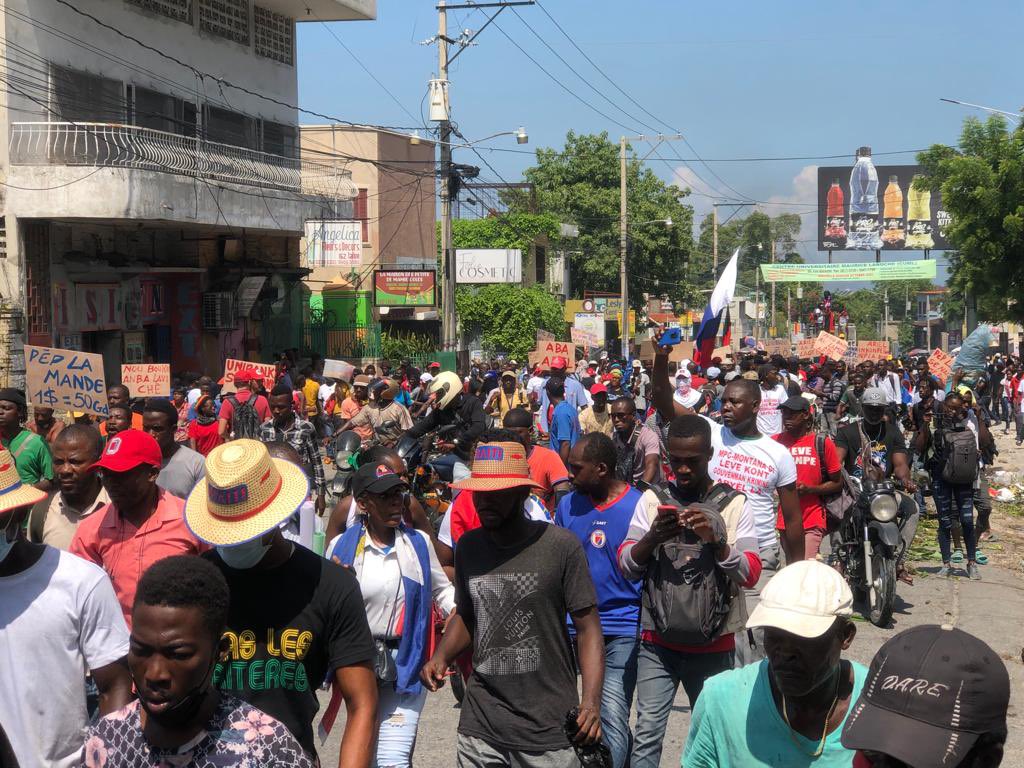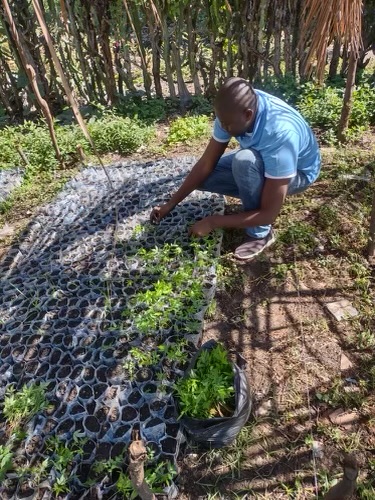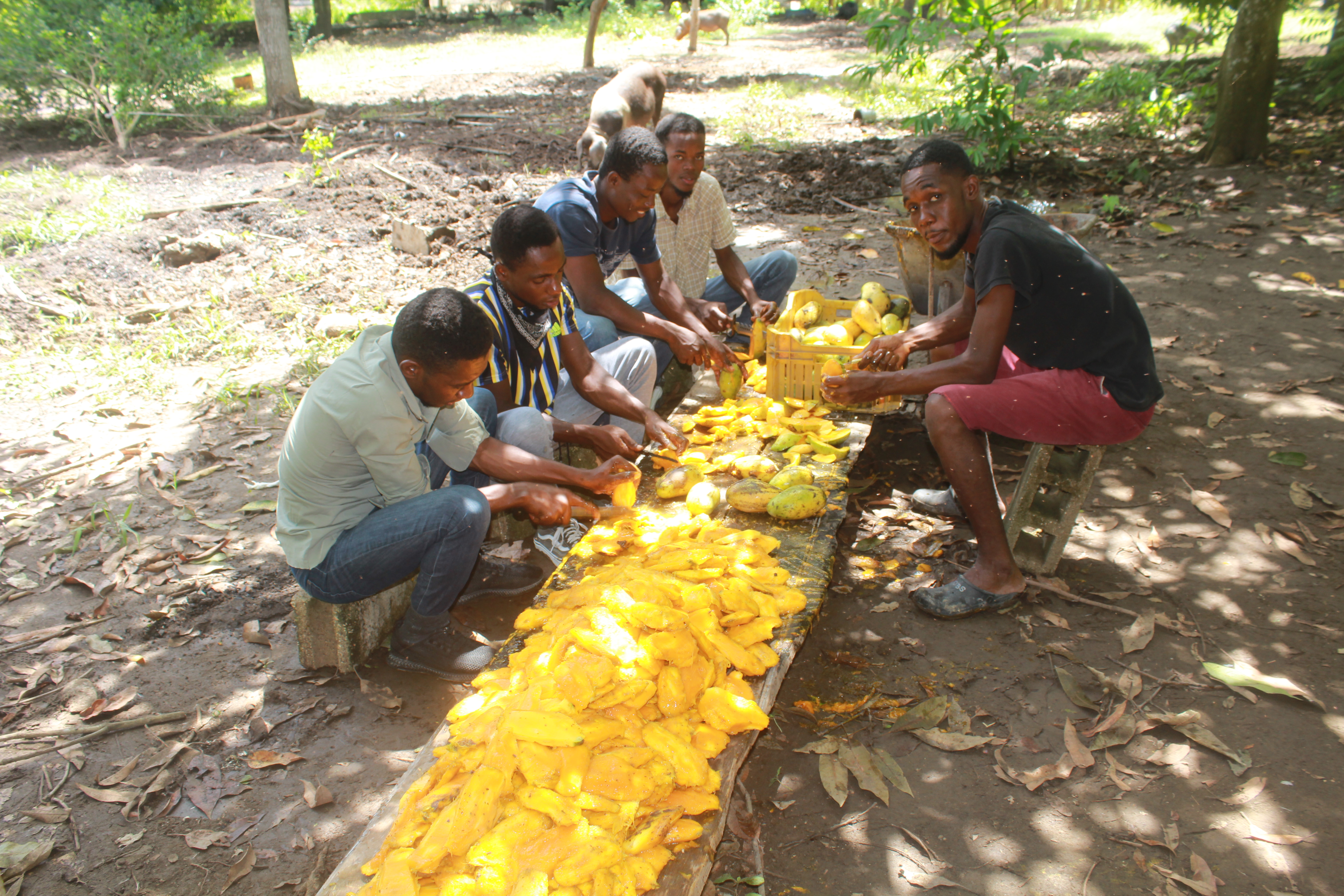We have arrived at an important moment in Haiti’s history. 220 years ago, on January 1, 1804, the people of Haiti declared their independence from enslavement and colonial rule. Haiti’s path since then has been grueling. Global powers at the time, including and especially the United States and France, imposed multiple barriers in the path of freedom for the first Black republic.
February 7 is another important date. 38 years ago, the ruthless Duvalier dictatorship ended and Haiti recommenced its path to democracy. It was during this period of hope and renewal that Quixote Center began working together with the people of Haiti, supporting democracy and economic independence.

February 7 is the date established in Haiti’s constitution for presidents to hand power over to an elected successor. Haiti currently has no elected national government officials. Ariel Henry, the de facto, unelected, prime minister, signed an agreement in December 2022 to relinquish power on February 7, 2024. There is no indication that Henry will fulfill this obligation, and the situation in Haiti can only be described as complete chaos.
This week, the UN released figures on Haiti’s gang violence. Gangs control 80% of the capital, Port-au-Prince, and have moved into rural areas. Last year, gangs murdered nearly 5000 people, up 110% from the year before. Kidnappings went up 83%. Last week we learned that gangs kidnapped six nuns (since released). The Haitian National Police is outgunned, outnumbered, and outmaneuvered. As a direct result of the violence, food insecurity, lack of governance, and general chaos, the number of Haitian migrants increased 23-fold.
This morning, Kenya’s High Court blocked a planned police deployment to Haiti. Funded by the United States, the idea was to open up blocked roads and infrastructure to provide at least some relief. At this point it remains unclear whether Kenya and the United Nations will find a way around the ruling. In any case, this would only have offered short-term relief to an intractable situation.
Quixote Center works for long-term solutions. Our Haitian colleagues regularly ask us why the United States allows weapons to flow into Haiti. Haiti does not manufacture weapons or ammunition, yet the country is saturated with small arms. A UN report released in March 2023 uncovered what every Haitian already knows: the United States is the source of illegal firearms in Haiti. A network of criminal actors purchase weapons in states with weak gun laws. These criminals transport guns from other states into Florida, and then illegally smuggle them into Haiti.
Weapons trafficking is a primary cause of the current chaos, which is why we are prioritizing it for our advocacy efforts. Together with our partners, during the past few weeks we have begun meeting with congressional and administration offices to seek and promote solutions. We plan to support the ARMAS Act in the House and work toward the introduction of companion legislation in the Senate. We will also pressure the administration to do more to stop the flow. Your help is critical to this effort; in the coming weeks, look out for an action.
 Another primary cause is the inability of average Haitians to provide for themselves and their families. Hungry people with hungry children do desperate things, including joining armed groups and participating in illegal activities that provide an income, such as kidnapping. Quixote Center prioritizes economic development that will transform poverty. In Gros Morne, in 2024 we will continue to maintain the model reforestation effort, the tree nurseries, and the educational and training programs. In addition, we have prioritized:
Another primary cause is the inability of average Haitians to provide for themselves and their families. Hungry people with hungry children do desperate things, including joining armed groups and participating in illegal activities that provide an income, such as kidnapping. Quixote Center prioritizes economic development that will transform poverty. In Gros Morne, in 2024 we will continue to maintain the model reforestation effort, the tree nurseries, and the educational and training programs. In addition, we have prioritized:
- Maintaining and expanding the plantain project, which offers plantain seedlings at reduced rates. Plantains are a food crop as well as a cash crop, and they also protect the soil.
- Continuing to expand the seed bank, which makes available high quality seeds to improve the quality and quantity of food and cash crops.
 Funding a plan for improved veterinary care for farm animals, so that they become more valuable for food and cash.
Funding a plan for improved veterinary care for farm animals, so that they become more valuable for food and cash.- Seeking local sources for animal and fish feed, reducing cost and importation issues, and ensuring a low cost supply of eggs, fish, and other sources of protein. Local producers will supply the feed components and earn income on the sale.
In addition, we continue the work with our Gros Morne partners to develop viable opportunities for employment, such as a mango processing factory, fish farm, and agricultural supply store. These ideas are not ready yet, but they are well on their way.
We are also currently seeking funding for a three-year Social and Economic Recovery Project in Gouin, Haiti. Based on a study conducted with community leaders, the program aims to lift 600 rural farm families out of poverty and provide a model for similar programs elsewhere.
As I write this, Congress is arguing over a deal that would exchange the rights of migrants for foreign military aid. Quixote Center dreams of a world where people don’t have to flee their homeland; a world where all people can live in peace and freedom. Haitians are among the top nationalities of migrants crossing through the treacherous Darien Gap in Panama. In November 2022 UNHCR urged countries to stop deporting Haitians; the Dominican Republic deported over 120,000 from November 2022 to August 2023. The Biden Administration has deported a total of 27,309 Haitians to date.
Chaos in Haiti is contributing to a global migration crisis. We will not solve it until we deal with the problem at its roots. Thank you for your support.


